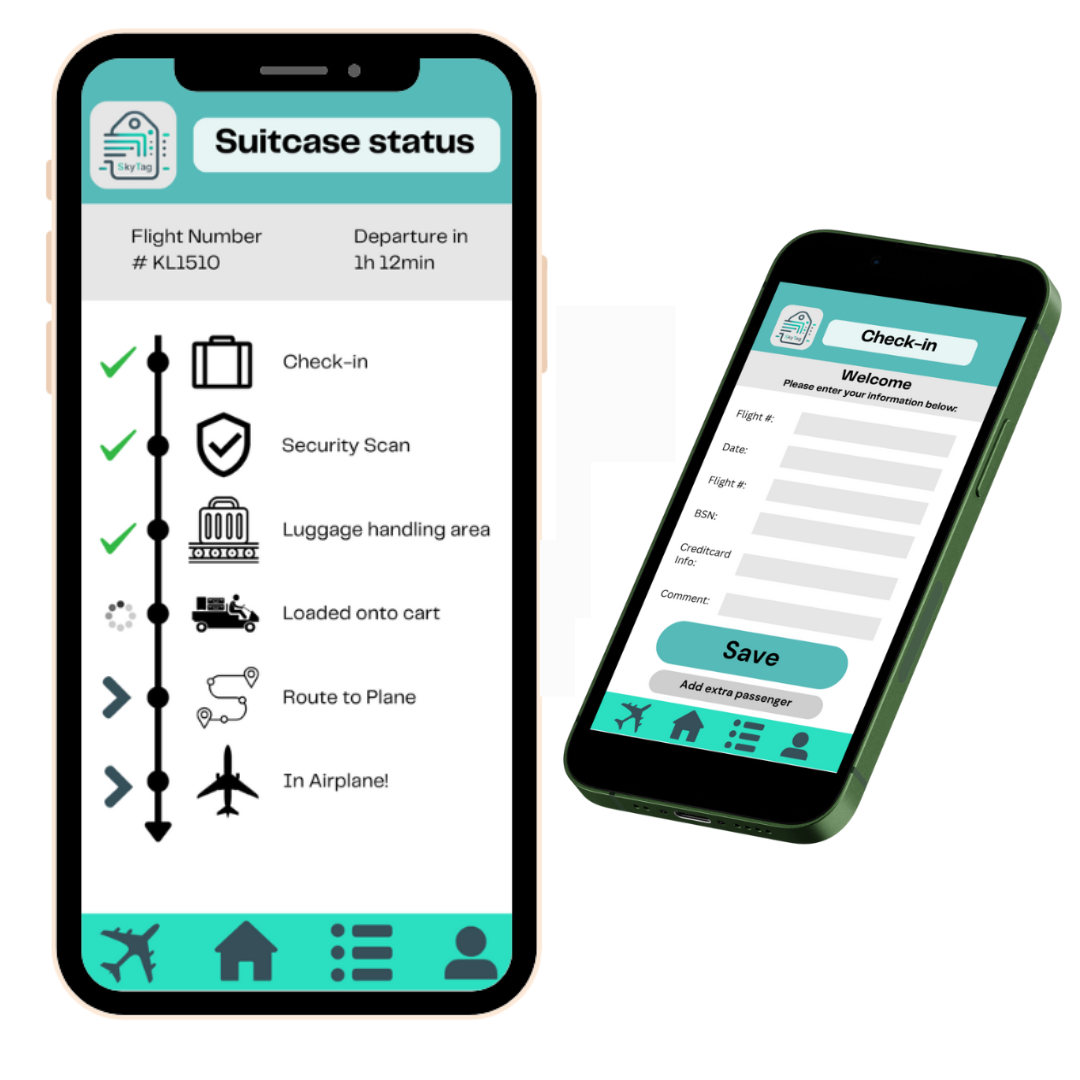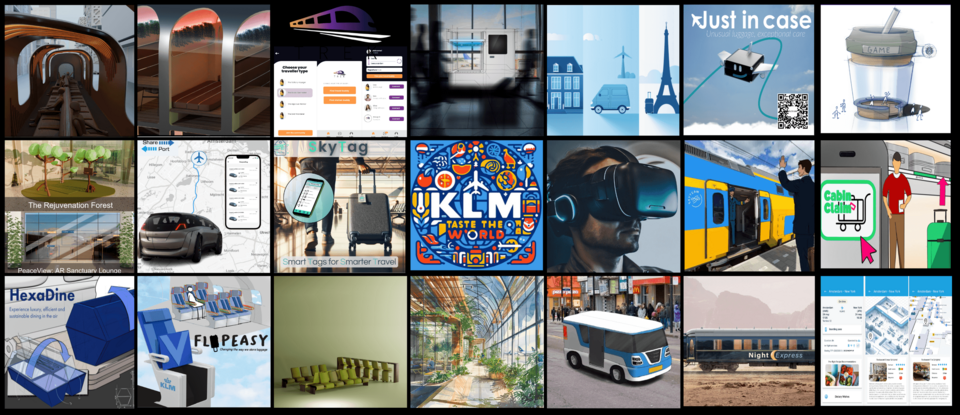Discover the 21 Reimagining Mobility course projects
Where is the future of mobility taking us? What is a meaningful mobility solution? During the last nine weeks, 80 students in the Reimagining Mobility Bachelor elective led by Eui Young Kim have explored these questions. The theme of this year was redesigning air travel. The students designed a future mobility concept presented in a digital advertorial format and showcased their work at an exhibition on 15 April. Explore some of the projects below.
Lighter planes mean less fuel usage and thus less pollution. Students Robin Appels, Marin Roscam Abbing, Sem de Lijster and Idalie Magener discovered that the way onboard meals are stacked in trolleys is not efficient as there is much wasted space between the trays. That is how they came up with the HexaDine concept. “This hexagonal packaging can unfold to reveal a beautifully presented meal. It can replace traditional trays, offering optimal space saving, reducing operational burden and enhancing sustainability.” The students created this concept in collaboration with KLM.
We all struggle with our luggage during air travel. We need to drag it to the airport, check in, weigh it, attach the right tags and match them to our credentials. Students Hugo Kanters, Floris Nieuwenhuyse, Olle Beijen and Salome Tiemersma came up with a solution: SkyTag. It is a smart label that is linked to your passport, credit card, and flight details. “It enables passengers to check in from home and eliminates the need to check in at the airport. Once checked in at home, luggage can be dropped off on a dedicated conveyor belt without airline staff assistance.”
Train travel through Europe is not always an easy breeze, but there are many ecological benefits. That’s why the EU wants to boost train travel throughout Europe. To help accomplish this mission, students Alessio Candido, Esther van Dieren, Gerrit van Reeuwijk and Lorenza Rubin developed the concept of the Trek-app. “Trek is a platform that connects train travellers to each other to enhance the feeling of safety and connection during their journey. By creating positive and safe encounters we encourage people to travel by train rather than by plane.”
Did you know that one of every thirty planes that arrive at Schiphol has a human trafficking victim on board? Many people aren't aware of the scale of modern slavery. Students Isabel Boogers, Lewis Joseph, Sando Boog and Thijmen de Vries wanted to boost passengers’ awareness, and developed the Barista Game. In this short game players experience what it is like to be a barista through VR and AI technology…but did they notice? At the end of the game, the screen rewinds to the start, and reveals a human trafficking situation happening in the background. “We hope this shock value makes people talk about this subject, and creates awareness.”
Course coordinator Eui Young said: “It was wonderful to work with the students. They were highly motivated to challenge themselves to answer the question of what role mobility can play in reimagining the way we travel and make it meaningful. I want to thank all the coaches, weekly module leads, the teaching assistant, and guest speakers who made this year's course a big success again.”





